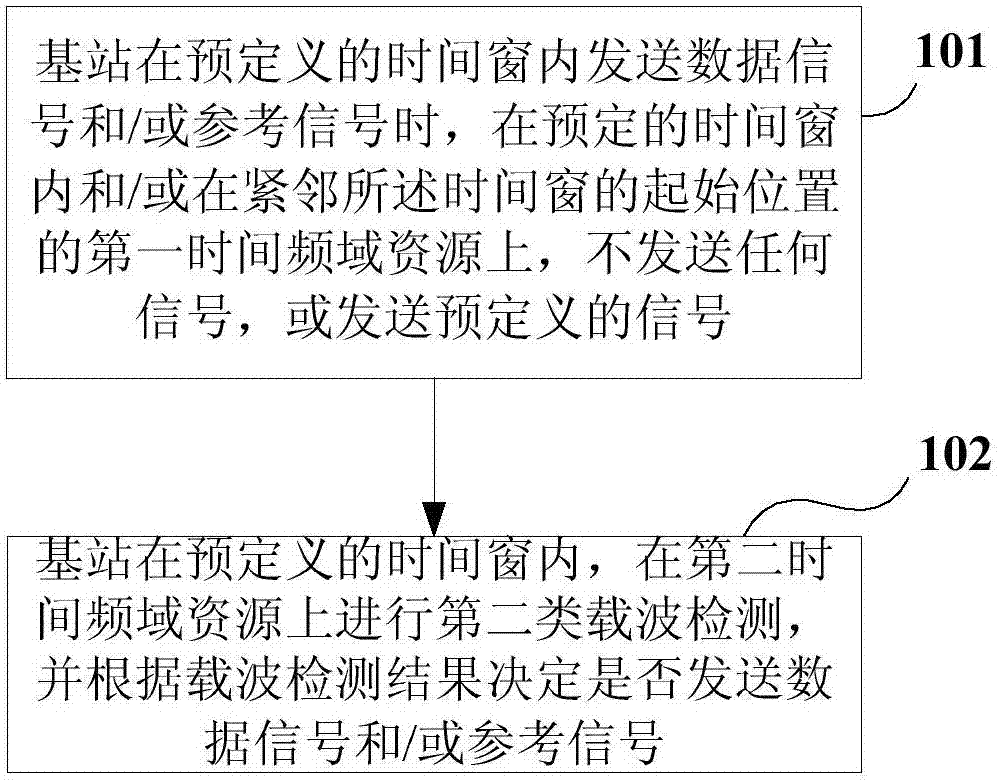Signal sending and receiving method and user equipment
A signal transmission and signal technology, applied in the field of mobile communication, can solve the problems of unable to send DRS, busy channels, etc.
- Summary
- Abstract
- Description
- Claims
- Application Information
AI Technical Summary
Problems solved by technology
Method used
Image
Examples
Embodiment 1
[0100] In this embodiment, signal processing on the first time-frequency domain resource and carrier detection processing on the second time-frequency domain resource are given.
[0101] The figure is a schematic flow chart of a signal transmission and carrier detection method provided in this embodiment, as shown in FIG. 2 , specifically including:
[0102] Step 101: When the sending node sends a data signal and / or a reference signal within a predefined time window, within the predetermined time window and / or on the first time-frequency domain resource immediately adjacent to the start position of the time window, do not Send a signal, or send a predefined signal.
[0103] In practical applications, before sending the data signal and / or the reference signal, carrier detection should be performed first, and then it is determined whether to send the data signal and / or the reference signal according to the carrier detection result. Then, for a continuous burst of data signals a...
Embodiment 2
[0166] This embodiment provides a specific implementation of using the third time-frequency domain resource to perform carrier detection and signal transmission under the condition that the transmitting node only transmits the reference signal within the time window.
[0167] Figure 18 It is a schematic flow diagram of a basic flow chart of a signal transmission and carrier detection method given in this embodiment, such as Figure 18 shown, including:
[0168] Step 1801: The base station performs a third type of carrier detection on a third time-frequency domain resource before sending a reference signal within a predefined time window. Wherein, the third time-frequency domain resource overlaps with the first time-frequency domain resource. The base station performs energy detection or sequence detection in the time domain, or energy detection or sequence detection in the frequency domain on the third time-frequency domain resource.
[0169] The intersection of the third ...
PUM
 Login to View More
Login to View More Abstract
Description
Claims
Application Information
 Login to View More
Login to View More - R&D
- Intellectual Property
- Life Sciences
- Materials
- Tech Scout
- Unparalleled Data Quality
- Higher Quality Content
- 60% Fewer Hallucinations
Browse by: Latest US Patents, China's latest patents, Technical Efficacy Thesaurus, Application Domain, Technology Topic, Popular Technical Reports.
© 2025 PatSnap. All rights reserved.Legal|Privacy policy|Modern Slavery Act Transparency Statement|Sitemap|About US| Contact US: help@patsnap.com



